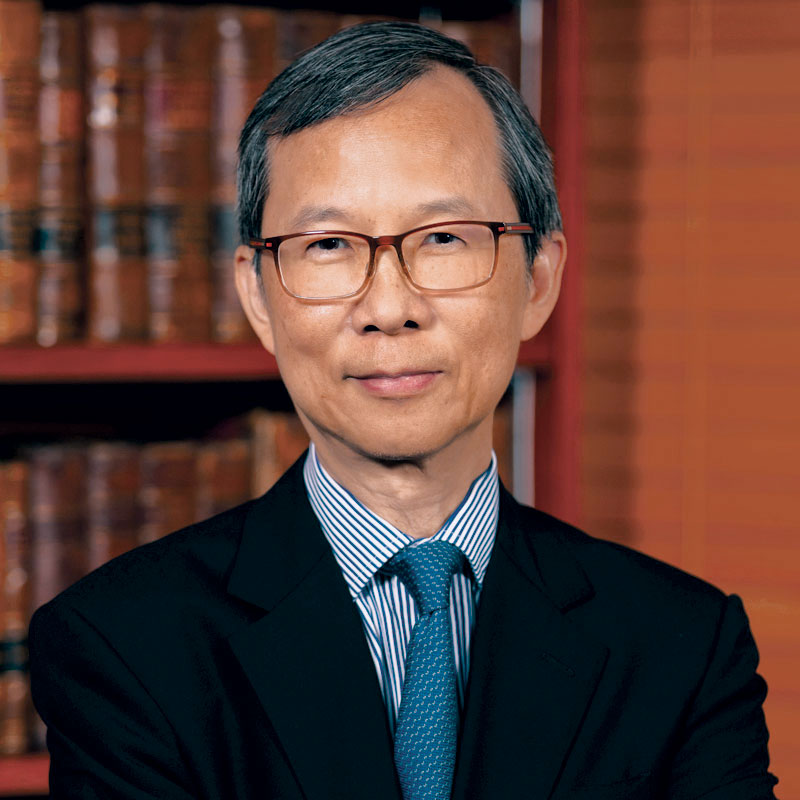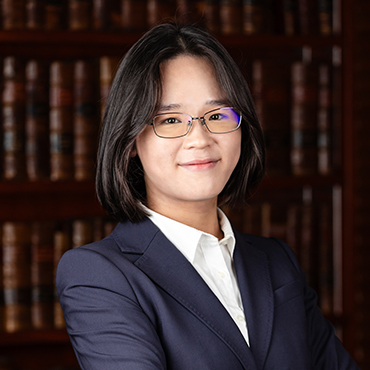Lam Wai Kong (林偉光) v Lam Ying Kit (林英傑) [2025] 2 HKC 247, [2024] HKCFI 3181 (Valentine Yim, Myranda Lai)
Valentine Yim and Myranda Lai represented the plaintiff in Lam Wai Kong (林偉光) v Lam Ying Kit (林英傑) [2025] 2 HKC 247, [2024] HKCFI 3181.
The defendant applied for an extension of time for his handwriting expert to examine the alleged will and for the preparation of the expert report. Having heard the parties’ submissions, a Master of the High Court ordered the defendant to pay the plaintiff’s costs of and incidental to the application, summarily assessed at HK$75,000 with certificate for counsel. The defendant appealed against the master’s decision on costs.
Held, dismissing the appeal:
(1) A costs appeal from a master to a judge in chambers was different from an appeal from a master to a judge in general: The appellant had to point out how the master’s costs order was unreasonable or where the master erred in law. Therefore, the defendant had to prove that the master ‘either failed to take into account proper matters or took into account matters that should not have been taken into account’, or where she was ‘unreasonable’ or ‘erred in law’. It was established law that it was not for the court to decide whether to allow the appeal on the basis that the master should have exercised her discretion differently. Gee Fung Yin (朱鳳妍) v Gee Fung Kuen (朱鳳娟) & Anor [2017] HKCU 1057; (HCA 1940/2015, Wilson Chan J, 28 April 2017, unreported); Poon Wong Yee See (黃綺施) v Lo Sau Woon Diana (盧秀緩) [2021] HKCFI 3410, [2021] HKCU 5448 applied (paras 9-10, 12).
(2) In general, a master making a costs order had wide discretion, which the the judge on appeal should be circumspect in interfering with. The established approach was that the court would only interfere when it was satisfied that the decision was either wrong in principle or plainly wrong. None of the defendant’s grounds related to matters which the master should or should not have taken into account, or whether the costs order was unreasonable or erred in law. They were all within the discretion of the master and there was nothing wrong as a matter of law. Grounds 1 to 7 merely set out how the master should have exercised her costs discretion better and it was not the court’s function to reassess the master’s assessment unless it was unreasonable. Although grounds 4 to 9 provided criticisms on specific items in the plaintiff’s statement of costs, it was not right to embark upon an item-to-item consideration of costs as it was contrary to the nature of summary assessment, where the court took a broad-brush approach. Kwai Tak Ming v Ks Capital One Ltd & Ors [2015] 4 HKC 225 and Poon Shu Fan v Wong Tin Yan & Anor [2012] 6 HKC 428, [2012] 5 HKLRD 512 followed. Chen Ningning v King & Wood (A Firm) [2020] HKCFI 602, [2020] HKCU 752 considered (paras 13, 17).
(3) Engagement of counsel in the matter was justified. The defendant could not argue that counsel’s attendance was unnecessary when he engaged counsel to make the application in the first place. The fees of the plaintiff’s counsel were very reasonable. The taxation by the Master of counsel’s fees was entirely within the master’s discretion (paras 14-16, 28).
(4) Under the Civil Justice Reform, the court was encouraged to order an immediate payment of costs of interlocutory proceedings and if possible by way of summary assessment of costs. The considerations relevant to deciding whether or not to make an order for an immediate quantification/payment of costs in interlocutory applications included (a) the extent to which the proceedings on taxation (or assessment) were severable and self-contained from the rest of the action, (b) the justice of making such an order having regard to the effect on the respective parties’ cash flow, (c) whether the amount at stake was sufficient to justify the expense of a separate taxation (or assessment) for it rather than bringing it on the final taxation, and (d) the possibility that there might be no trial. It was a norm now for the court to make summary assessment of costs under RHC O 62 r 9A for interlocutory applications with the broad-brush approach and the payment of the costs should be immediate. Seridom Servicios Integrados Idom Sau v Heng Wen Trade Co Ltd (桓文貿易有限公司) & Ors [2019] HKCFI 761, [2019] HKCU 1108 followed. Kwai Tak Ming v Ks Capital One Ltd & Ors (above) considered (paras 19, 20).
(5) The defendant’s application was ‘severable’ and self-contained from the rest of the action. Further, adjourning the issue of costs to another hearing would have incurred more costs, which would not be proportionate with the costs incurred (para 21).
(6) The Master was perfectly entitled to take into account the conduct of the parties, including the conduct before the defendant’s application. The Master could and indeed concluded that the application was not a standard time extension and ordered the party seeking indulgence from the court to pay a higher scale of costs, departing from the standard costs order of HK$1,040. Waxman & Anor v Li Fei Yu & Anor [2013] 6 HKC 424 followed (paras 22-24).
[The above is excerpted from the headnote to the report in HKC.]



